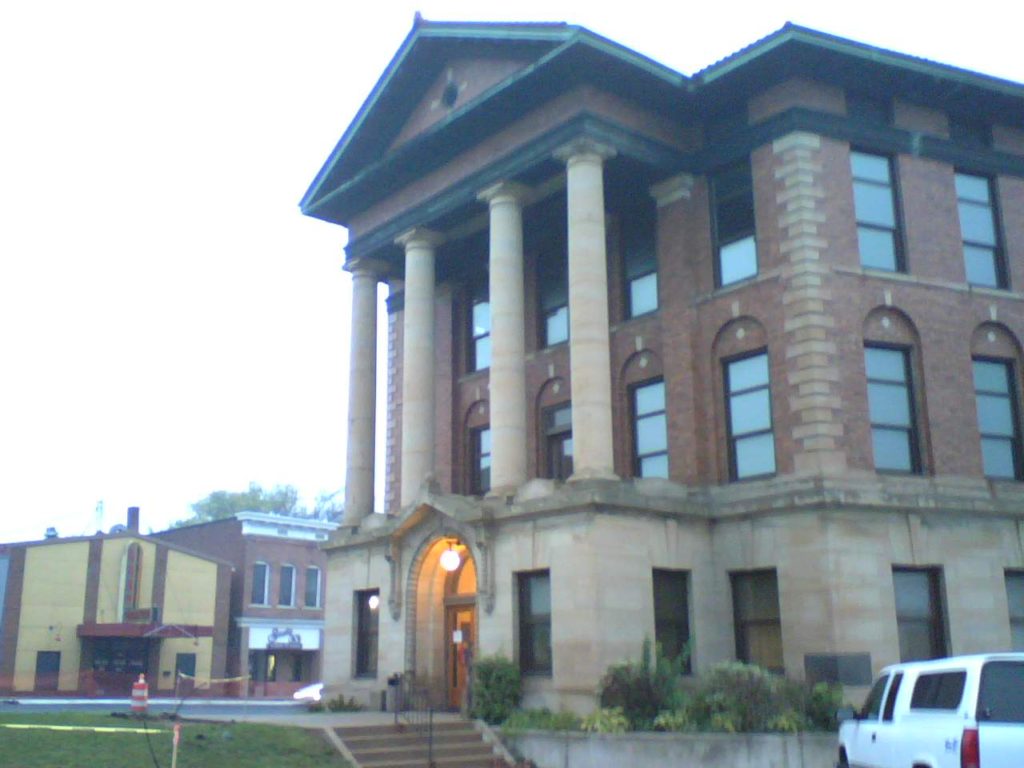
One roadblock keeps Hillsdale residents from quality internet access: it isn’t yet profitable to extend the fiber optic network looping around the city to private homes.
That means city residents — and those in the surrounding townships and county — are limited to local providers that struggle to provide reliable, quality internet in a rural area, even though the city of Hillsdale has the infrastructure to access high-speed internet through the fiber network.
The conundrum is threefold: the infrastructure is outdated in rural areas across Michigan, many communities cannot afford to upgrade to the newest technology (like a fiber optic network) to bring high-speed internet to their homes, and the big providers — like Verizon and AT&T — won’t service many of those communities because their populations are so sparsely dispersed it’s not profitable for them.
Thus, many rural residents struggle to get reliable internet, a concern that state legislators and the Federal Communications Commission are working to address.
Michigan House Rep. Donna Lasinski, Ann Arbor-D, introduced a bill in January that would allow rural townships to levy taxes for the purpose of setting up their own township-run internet services. Lasinski, who represents the 52nd district, said if underserved communities want internet access, then local governments should provide it if private providers won’t. She described her bill as a “private-public partnership,” because 80 percent of a township’s residents must vote to tax themselves to implement the public service.
Lasinski said she authored the bill because there are “entire townships” in her district with no internet access at all.
“The statute already exists to allow townships to issue special assessment districts for improving roads, water, or sewage,” she said. “My bill adds a statute so that townships can set up broadband services so they’re not left behind in the digital age.”
Lasinski’s mission aligns with that of new FCC chairman Ajit Pai, who told a crowd of Cincinnatians in September that he hopes to reverse this “digital divide.”
“The way I see it, every American who wants high-speed internet access should be able to get it,” Pai said. “Every consumer should have affordable choices in a competitive marketplace.”
But Hillsdale Township, which surrounds the city of Hillsdale, told The Collegian it’s not interested in setting up an internet service for residents should Lasinski’s bill become law.
“It wouldn’t really be viable for us, it would not be a top priority for us,” said Jackie Sullivan, township supervisor. “I guess it would depend on if there’s an interest in an area of the township.”
Private businesses and individuals say they’re frustrated with the lack of dependable broadband options in Hillsdale County.
Hillsdale County resident Jeff King must uproot his life and move three hours north because of the lack of reliable internet in the county crippled his ability to run his business. He relocated his business AeroData to Holland, Michigan in January and his house is up for sale, but it hasn’t sold yet. He told The Collegian “half the county is underserved” with regard to decent internet access.
The city has discussed launching a city-run broadband service, but doesn’t have the funds to do it, said Mary Wolfram, Hillsdale Director of Economic Development.
ACD.net, a private provider with projects in Michigan and Ohio, was able to install the fiber network in Hillsdale with the help of a federal grant — from the Broadband Technology Opportunities Program, part of the American Recovery and Reinvestment Act of 2009 — with the condition it be used by private residents and businesses. While that is ACD.net’s plan, it “just hasn’t happened yet,” Wolfram said.
“Here’s the interesting thing about the free market: you can’t force that company to do it, it has to be profitable for them to want to do it,” said Mary Wolfram, Hillsdale director of economic development. “So we’re basically waiting for ACD.net to do it. And they’re doing it alongside all of their other millions of projects in the state of Michigan.”
Meanwhile a fiber optic network that is now seven years old loops around the city of Hillsdale and promises more bandwidth at a faster rate than Frontier, Comcast, or any of the local providers. Until ACD.net and other more able providers can offer better internet, Lasinski’s idea to allow townships to decide to tax themselves and set up their own service could be a good plan for rural communities, said Hillsdale College Professor of Political Economy Gary Wolfram.
“Someone will be taxed who doesn’t want to, but that solves the free-rider problem,” Gary Wolfram said. “If you tax yourself to bring in the internet, your property values go up, and it incentivizes people to move there. I won’t say that’s a stupid thing to do.”

